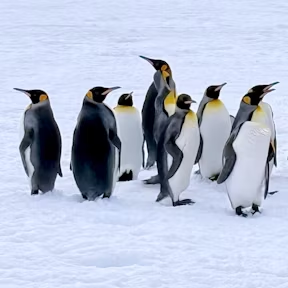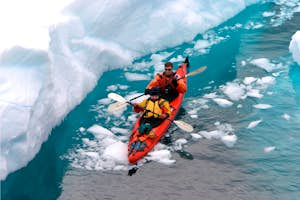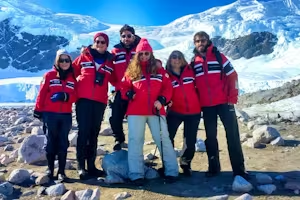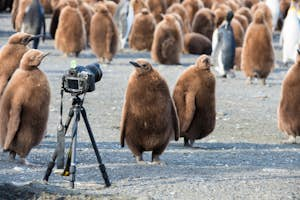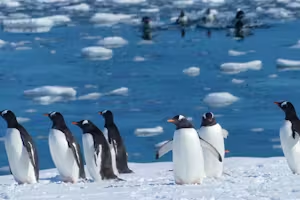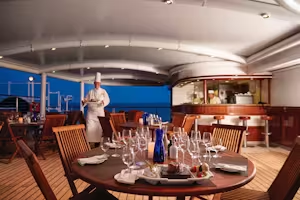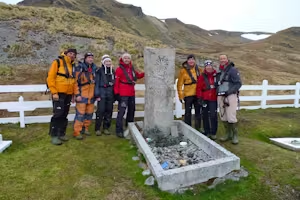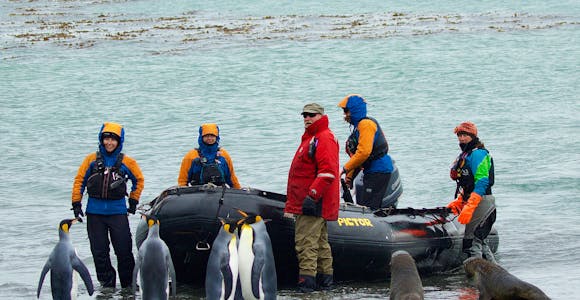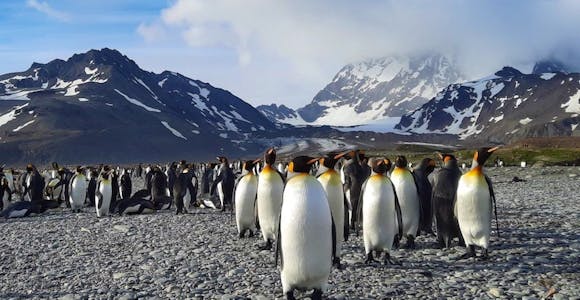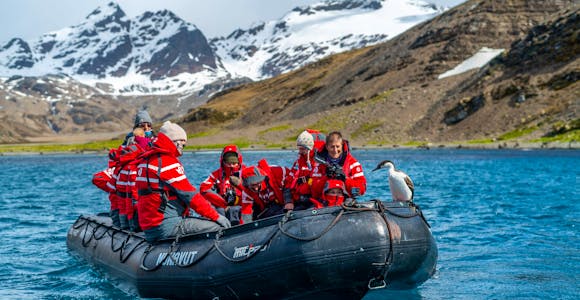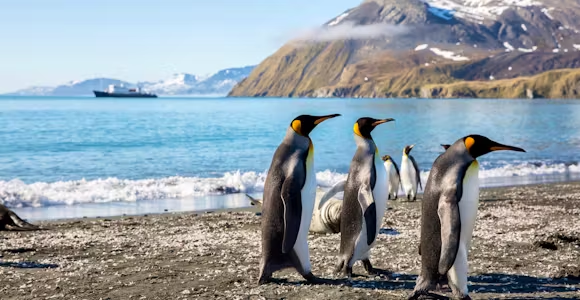Spring
The first few expedition cruise ships start to call at South Georgia from mid-October, as the spring thaw takes hold.
The beaches are dominated by Southern Elephant seals, with massive bulls jousting violently to claim supremacy over large harems of females, while the first pups from last season’s mating are born. By the end of the month, the first male fur seals also come ashore to grab their own breeding territory.
While winter snows persist in many locations, penguins of all species are returning to shore after a season largely spent at sea. Seabirds like petrels also return in their millions to start their breeding cycle afresh.
